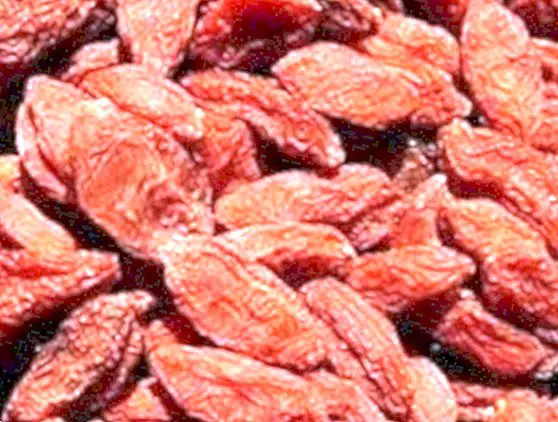Tryptophan: what it is, benefits, functions and rich foods
Among the different essential nutrients that we must contribute to our body from the diet every day (especially vitamins, minerals, fiber and antioxidants), we must pay almost special attention to the essential amino acids they are fundamental, since our body is not capable of synthesizing them (that is, producing them by itself).
In total there are 10 essential amino acids, which we must contribute to our body through nutrition that we follow daily. And what are the richest foods in them? Fundamentally the richest in proteins, which our body breaks down to obtain them and thus form new proteins. 
Precisely the tryptophan is another of the most popular or popular essential amino acids, along with methionine or phenylalanine.
What is tryptophan?
Tryptophan is an amino acid considered essential, mainly because - as you surely know - our organism is not capable of synthesizing it by itself.
Therefore, to contribute to our body we must always do so through diet, consuming those foods rich in tryptophan, especially whole grains, milk and eggs, as well as other foods of animal origin as for example is the case of meat and fish.
It is an essential amino acid in our diet, as it helps produce vitamin B3 (niacin), necessary for the metabolism of fats and proteins, to improve blood vessel circulation, to control sleep and muscle activity ...
That is, it consists of a essential amino acid, which means that it is only obtained through food because our body is not able to manufacture them or does so in very limited quantities.
Therefore, in order to provide the body with the amount of tryptophan that it needs daily, it is essential to follow a varied diet among whose foods we find ourselves with whole grains, milk and eggs.
Not in vain, it is usual that people who follow a vegetarian diet have a higher risk of deficiency of this essential amino acid.
Functions of tryptophan
- Serotonin regulator: One of the main functions of tryptophan is that it is a fundamental amino acid that regulates the levels of serotonin, a brain neurotransmitter precursor of the hormone melatonin, which regulates the daily wake-sleep cycle.
- Important for vitamin B3: In addition, it helps the body make its own proteins, as with all essential amino acids, and is important in the formation of vitamin B3.
- Anxiolytic and antidepressant effect:In turn, tryptophan helps serotonin control appetite, exerting an anxiolytic and antidepressant effect. It helps control insulin levels, since it tends to calm our nervous system.

In any case, we could summarize the main functions of tryptophan in the following section:
- It helps to produce vitamin B3.
- It exerts a soothing effect on the nervous system.
- Reduces anxiety and depression
- Stabilizes the mood.
- Reduce appetite
- Increases the release of growth hormones.
Benefits of tryptophan for health
As we briefly indicated with respect to the different functions of tryptophan in our organism, one of its main benefits (for which, in short, tryptophan is certainly popular and better known) is its calming effect on the nervous system, which means that it helps to calm anxiety and depression, and also relieves insomnia by inducing sleep.
It also helps the proper functioning of our immune system, and in cases of migraine can help in your medical treatment, by reducing headaches.
Supplements with tryptophan are often used in slimming diets, because it is able to reduce appetite, with consequent weight control.
Where to find tryptophan? The richest foods
Foods of animal origin with high tryptophan content
There are many foods of animal origin that stand out for their high content in tryptophan. The following stand out:
- Meat.
- Fish:especially blue fish, especially salmon, sardines and mackerel.
- Eggs
- Milk.
- Dairy products:like yogurt and cheeses.

Plant-based foods high in tryptophan
- Vegetables:especially lentils, chickpeas, peas, soybeans, beans and beans.
- Cereals:wheat, rice, oats, barley and rye.
- Nuts:peanuts, almonds, pistachios, cashews and pine nuts.
- Fruits:banana, strawberries, avocado, papaya, mango, oranges, grapefruit, peaches, grapes and apples.
- Vegetables and vegetables:pumpkin, arugula, watercress, spinach, asparagus, Brussels sprouts, celery, onion, garlic, lettuce, eggplant, tomato, cucumber, carrot and chicory.
- Seeds:Sesame and sunflower seeds.

Consequences of the lack of tryptophan
The deficiency of this amino acid along with a mineral as important as magnesium can contribute to spasms appear or occur in the coronary arteries.
It can also cause mouth pain and redness of the mucous membranes of the mouth.
Contraindications of tryptophan
- Pregnancy.
- People with liver and kidney problems.
- People who are taking medications for depression or tranquilizers.



